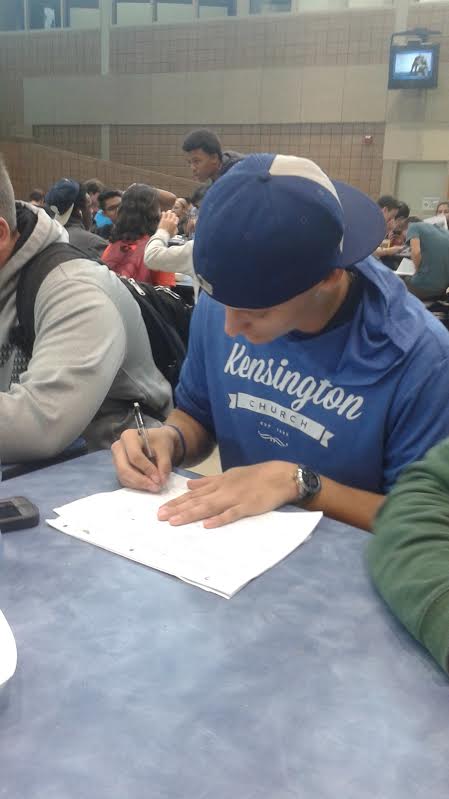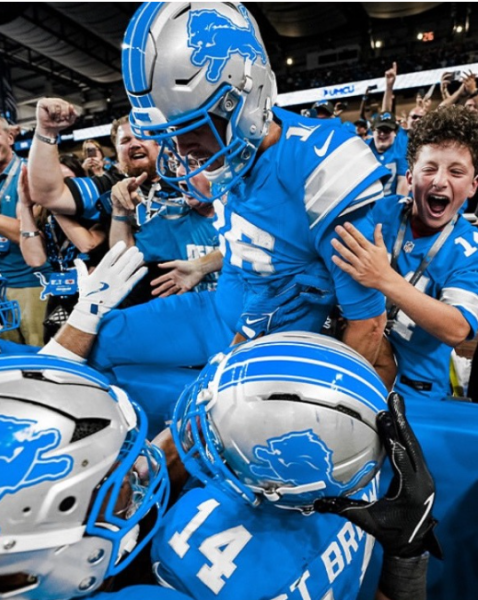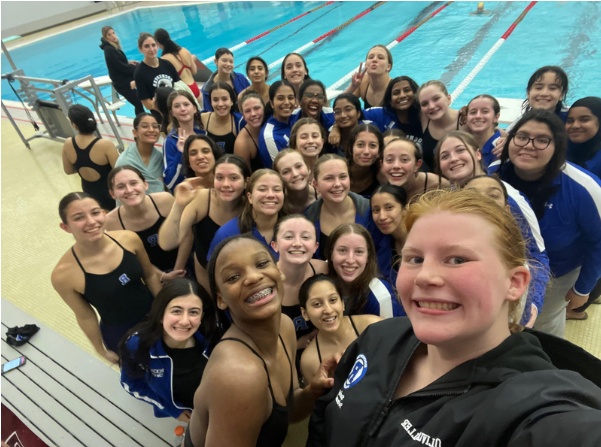Student-athletes learn real-life skills when juggling busy schedules
November 16, 2015
Athletes are preparing for the start of their winter sports seasons at Rochester High, and committing time to a sport means that there is less time for homework assignments to be completed. This is the life of a student-athlete, and it can be very stressful for anyone involved in a sport to maintain their grades.
“I stay at school late every day because of my wrestling practices and meets so I don’t have time for anything else,” senior Jeff Ternes said. “During the season, my life is school and sports.”
Playing a high school sport requires at least a couple hours of practice time everyday after school, and athletes like Ternes are often left no choice but to stay up late in order to complete assignments.
“I’m up late doing homework every night,” Ternes said. “I get home from school late every day during wrestling season and that causes me to do homework when I’d rather be sleeping.”
Athletic director Mr. Luke Beach acknowledges the hard work student-athletes like Ternes do during the season.
“I think that our student-athletes do an outstanding job of balancing school, sports, work and social life,” Mr. Beach said. “That is what is so rewarding about being a student-athlete, is that you’re asked to do more, to have a school, work, life balance and most of our student-athletes thrive.”
While it can be difficult for student-athletes to get enough sleep every night, they are also able to figure out ways to get their homework done and still manage to keep a reasonable sleep schedule.
“I don’t usually stay up too late because I know when to stop,” sophomore Karlyn Kelley said. “If I need to, I’ll wake up early the next morning to finish something from the day before, so I never really find myself doing homework in the middle of the night like some kids.”
Although students may complete their assignments if they stay up late to finish them, this can cause fatigue which can have a negative effect on athletic performance. Kelley believes that exhaustion can hurt an athlete’s progression and that it is crucial for one to manage his or her time wisely to avoid this issue.
“I know that a lot of kids procrastinate way too much and end up staying up late doing homework and I think if they are really tired they won’t do as well as they would if they get enough sleep,” Kelley said.
Ternes agrees.
“If you’re trying to compete when you’re tired, you’re not completely focused, and you need 100 percent concentration,” Ternes said. “If you want to be at your best you need sleep so you have enough energy.”
With all the responsibilities that are thrown at student-athletes between school and sports, it can take a toll on them, but Mr. Beach believes that the benefits of taking on these responsibilities outweigh the costs.
“Athletics helps you to learn real life lessons and juggling numerous responsibilities is a real world skill,” Mr. Beach said. “Statistics and studies have proved that being a student-athlete benefits you as a student. Your grades are higher, you have a second family in your team and you learn what it means to be selfless.”
While any high school sport can be time-consuming, winter sports have the added stress of mid-term exams in January.
“I try not to get too worried about tests because I know that if I study I’ll be fine,” Kelley said. “If I need help, I just ask my parents to quiz me to make sure I know what I need to know. I just make sure not to procrastinate too much because if I did that I would be more stressed.”
Mr. Beach understands the stress that student-athletes face, but he believes that it can provide them with important skills that are essential in adulthood.
“I know it is stressful, but so is life,” Mr. Beach said. “It is hard balancing family, work, finances, friends, social life and faith in the real world. As much as it is stressful, it is also has a very large impact in the big picture. The life skills you gain from being a student and an athlete are beneficial even as an adult.”







